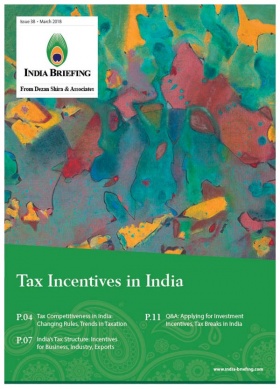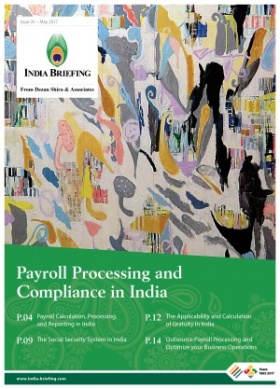HR Management in the Digital Workplace: Tips for Employers in India
The workplace, as we know it, is changing.
In organizations across the world, the pace of digital transformation is impacting matters linked with workforce optimization, talent transformation, up-skilling and re-skilling, training, and resource development.
These concerns lie at the heart of human resource management (HRM) and necessitate a change in the traditional functioning of HR teams.
HRM in the digital era confronts challenges on two fronts – one, making company processes automated and data-driven and two, transforming the workforce and ways work is done in the organization.
In simple speak, HR functions today cover a wide remit from strategy formulation to achieve an agile workforce to employee engagement and wellness practices.
Previously, HRM was limited to utility and paper intensive functions, such as recruitment, training, and payroll administration.
In this article, we discuss key strategies for HR managers to successfully adapt their organization to the digital workplace.
What motivates your digitalization strategy
Digitalization in HRM is the use of digital technology for the day-to-day implementation of a variety of HR processes – from recruitment to leadership management.
HR managers must reshape their functionality and create the optimal digital strategy to enhance the employee-organization relationship.
The first step is to set a clear end goal – that is, what are the key motivators shaping the digitalization strategy. Common questions asked are:
- How much of an organizational culture overhaul is needed to adapt the company to digital disruptions?
- What is the most effective way to align the firm’s organizational strategy with human resource development?
- Is the firm willing to be a market leader in the segment or do they work within a risk-averse business environment?
In short, HR managers must determine where the company’s future lies and what are its resources at hand to formulate a relevant and effective digitalization strategy.
HR companies today have at their disposal a wide array of technology products, both software and hardware-based, that enable them to centralize and automate complete HR processes.
However, superimposing digital infrastructure changes over legacy systems and processes, alone, will not promote growth in efficiency within the workforce.
In fact, the automation of unproductive processes can institutionalize inefficiencies and destabilize the organization. This is why identifying key company variables when formulating the digitalization strategy should be a top priority for HR managers.
Finding the right digital HR strategy for your company
Companies in most Indian industries now use structured data and technology for decision-making and employee assessments based on real time feedback, intra-organizational changes, and external pressures. This is particularly important in an ever changing and competitive environment as is India’s.
Forecasts of future financial and resource data, expected business patterns and growth strategies, and impending regulatory changes help HR managers to make informed decisions on hiring and management practices.
HR managers also face stiff competition when recruiting highly skilled employees in India given that low and unskilled labor dominate the job market. A study of employee attrition data in the company can help predict future employment trends and prompt HR departments to develop strategies to improve their employee retention.
Finally, HR departments need to factor in the type of organization, its digital transition capability, and sector of operation.
For example, the negative impact of digitalization will be negligible in an Indian IT firm as employees in these organizations are already comfortable using digital tools.
On the other hand, making a substantial digital change in an organization dependent on a low to semi-skilled workforce in a labor-intensive sector like basic manufacturing – could overwhelm employees and negatively affect the business.
Using the right digital tools to serve HR functions, meet organization goals
HR departments traditionally act as the conduit between employee expectations and core organizational goals. Aligning the two is necessary, and digitalization is simply a new way of achieving this process.
This is why HR departments are increasingly adopting digital systems to achieve positive business outcomes. At the same time, their effectiveness is contingent on finding the optimal method of implementation.
A drip-feed approach, using simpler processes first and incrementally adopting more sophisticated modules, will work best for smaller organizations with either limited resources or personnel unable to absorb large scale change upfront.
HR managers can incorporate technologies that employees are already familiar with, such as e-mail, instant messaging, enterprise social media, or virtual meeting tools and mainstream them into the work environment.
Once this is achieved, more complex solutions can be adopted, such as cloud services, online employee benefits management, and tracking data performance indicators.
Larger organizations, on the other hand, can initiate a complete overhaul of their HR processes by embedding digital infrastructure in a wide variety of processes.
Digital tools can be used to fulfil several administrative and communicative functions. These include performance appraisals, incentive management, employee engagement, collaboration between different teams, and intra-organization communication.
Simple online tools such as chatbots can help manage day-to-day employee problems, freeing HR departments to focus on more important tasks.
A good digital HR strategy will be able to manage the talent base while also enabling employees to chart their career path within the organization. This creates a positive working environment, where employees feel more invested in the future and growth of the organization.
Indian startups lead the way
Opportunities for third-party technology companies are immense in the HR digitalization sphere.
For example, Belong, a predictive hiring platform, uses machine learning algorithms to help businesses engage high-impact talent. They work with leading firms such as Amazon, Reliance Jio, and Cisco as third-party HR recruiters.
Other Indian tech companies, such as the US-based Phenom People and Hired.com focus on traditional HR functionalities by providing Indian companies with HR services though app and web-based platforms.
This makes HR processes such as recruitment, performance management, benefits management, payroll, and online training easy for small businesses with limited digitalization capabilities.
About Us
India Briefing is produced by Dezan Shira & Associates. The firm assists foreign investors throughout Asia and maintains offices in China, Hong Kong, Indonesia, Singapore, Vietnam, and Russia.
Please contact india@dezshira.com or visit our website at www.dezshira.com.
- Previous Article India, South Korea Trade and Investment Ties: Focus on CEPA, Make in India
- Next Article China Reduces Drug Tariffs, Indian Manufacturers Remain Skeptical over Market Access













